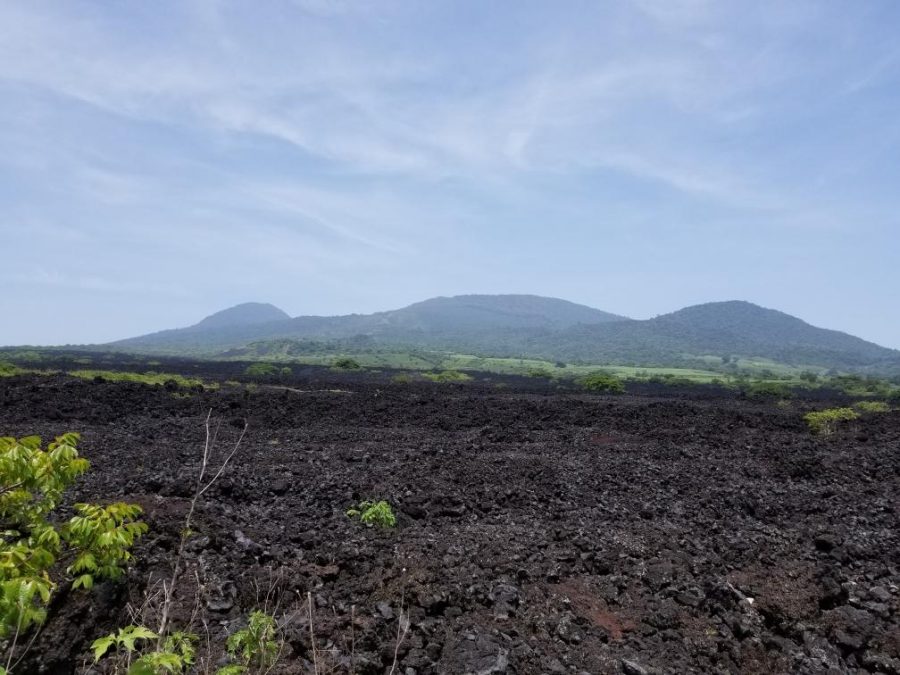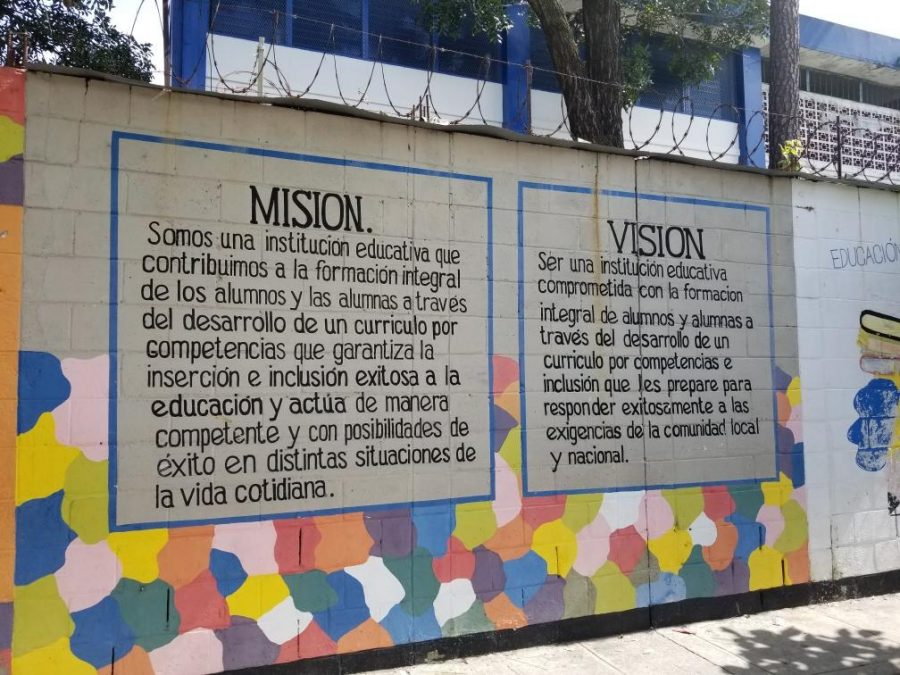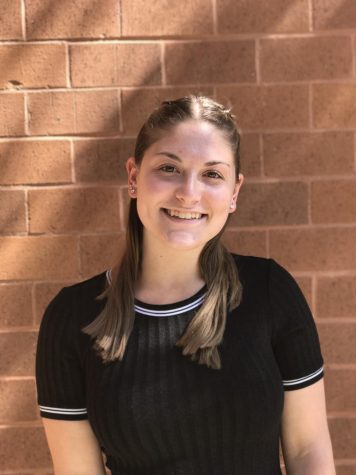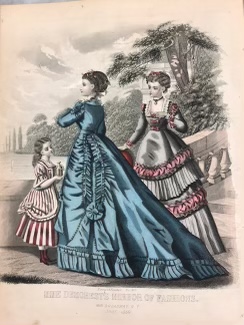Tarzwell visits El Salvador, brings lessons about culture back to his classroom
A lava field in El Salvador where thousands of bodies were dumped during the nation’s civil war.
September 12, 2019
Culturally responsive teaching is taking the education world by storm, allowing students of different ethnicities and backgrounds to connect to what they’re learning in their classrooms.
English teacher Scott Tarzwell took this a step further by visiting El Salvador in an attempt to engage in cultural enrichment.
At the end of July 2019, Tarzwell joined seven other area teachers to travel to San Salvador, Santa Ana, and El Zonte in El Salvador. During the nine-day trip, Tarzwell educated himself on El Salvador’s Civil War, which occurred in the 1980s and 1990s.
While Montgomery County Public Schools does not collect data on students’ country of origin, Watkins Mill has a large population of students whose families are from El Salvador. “Research shows and we know from personal experience, if a student doesn’t feel like their teacher cares about them, they’re not going to be open to instruction,” staff development teacher Kerrin Torres-Meriwether said. “Just being aware of our similarities and differences will help us as adults in the building, reach our students more.”
“I got a deeper appreciation as to why so many people have left El Salvador in the past,” Tarzwell said. What I’m seeing now is that there are a lot of people coming back to claim their culture.” He hopes to see a continuation of people reclaiming their country and even with the misconceptions about El Salvador, for example, Tarzwell did not see any signs of gang activity or violence.
Even though people are still leaving El Salvador, the reasons have changed drastically. Before, people were leaving due to issues with the government, the civil war, and the economy. Now, people are leaving to join family who are already in the United States. “It is slowly starting to turn around,” Tarzwell said. “More people are going back to help rebuild and there’s a new government which hopefully can help turn things around.”
“There are approximately six million El Salvadorans in the world, and two-and-a-half million aren’t in their country,” Tarzwell added. The program that Tarzwell went through to go on the trip was backed by Montgomery County Public Schools and run through Trinity College, which allowed him to gain three credit hours towards his masters plus sixty program.
Tarzwell wants to invite any students from El Salvador who are interested in talking to him about what he did or didn’t see. “I really hope [the trend of people returning to El Salvador] continues because it really is a beautiful place,” Tarzwell said.










